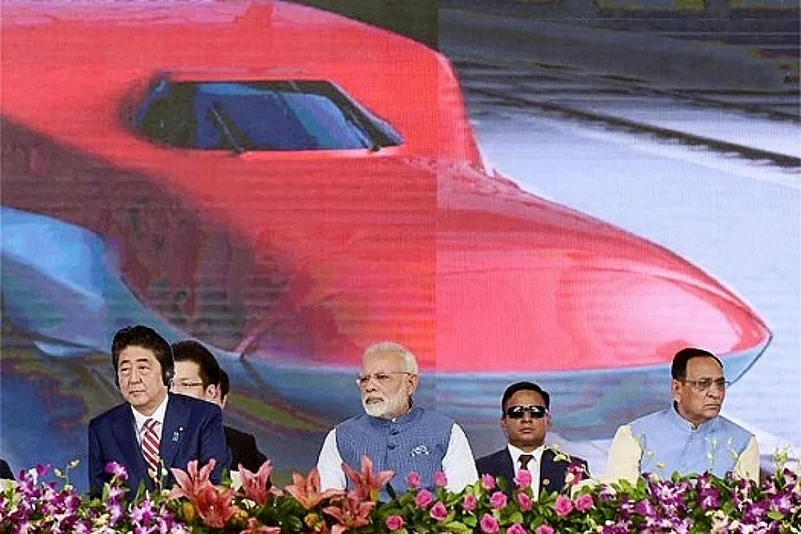About three years back, in a 2-minute video during which he managed not to laugh, Arvind Kejriwal claimed that a one-way ticket on the Ahmedabad-Mumbai bullet train would cost Rs. 75,000. Today, when almost the entire opposition is up in arms against the bullet train project, he is eerily silent. It shows he is a good politician. Those who oppose the bullet train are not. This is especially true of the Congress, which refuses to learn from its mistakes and continues to misread the pulse of a fast-changing India.
Blame it on the zeitgeist or Mr. Modi’s aspirational politics, the people have shunned garibi hatao in favour of amiri lao. The youth, even the most destitute, have turned far more ambitious. To a lot of them, the bullet train represents not a chariot reserved exclusively for the rich, but an opportunity that will provide jobs to them and rides to their posterity. Indians want to travel faster, richer, classier. In such an environment, the opposition, by playing negative politics, is yet again proving to be BJP’s most reliable friend. While young Indians look to scale new heights, all that the opposition can promise them is more land to dig worthless trenches.
Advertisement
For all its bad politics, there’s a fair chance that the opposition is, for once, making the right economic arguments. India is indeed a poor country and maybe resources are better spent elsewhere. But when has economics ever come in the way of politics? The bullet train could be an economic boon or bane, but for now, it doesn’t matter. Maybe it should run between a pair of cities that is not already heavily served. Maybe the fares are too high. Maybe the real cost of the loan is upwards of 0.1%. All these issues are for the technocrats to deal with. As far as politics goes, what really matters is that Mr. Modi is selling a dream to people and, like almost all the previous dreams he’s sold, the people will most likely lap this one up too.
Advertisement
Of course, it’s laughable to even fleetingly entertain the notion that the opposition is genuinely concerned about India’s economy and its poor. Coming from those who detest flying the “cattle class”, that would be a bit rich. The opposition’s sole concern is politics. Here, its strategy is dead wrong. For the opposition, offering constructive criticism would have been the only politically advantageous way of questioning the bullet train. Perhaps the suggestion that, before getting the bullet train, India’s premium trains should be upgraded to run at higher speeds, might have struck a chord with people – it saves resources while still ensuring faster travel and job creation. Or, it could have demanded more transparency over how the project was funded and the cost of repayments. It’s a sheer coincidence that these argument turns out economically advantageous too. But alas, by attempting to throttle the entire project, the opposition has chosen to deepen the grave it has dug for itself.
Mr. Modi has outsmarted the hapless opposition at nearly every turn of his tenure as PM. Each of his government’s flagship schemes has been sold to people as a means to empower them, and not as an end in itself. Regardless of whether these schemes succeed as they’re intended to, they’re politically savvy. Think skill development (job security), Jan Dhan (financial security), and others such as rural electrification and Mudra (economic empowerment). Even subsidy-based schemes such as Ujjwala have been packaged as tools of women empowerment. The bullet train is no different. On the other hand, UPA’s flagship schemes such as NREGA and Food Security Act were (dead) ends in themselves, and were underscored by a dole-based narrative. In an aspirational nation, a dream-based narrative would work far better.
Advertisement
(Prabhat Singh has previously been a journalist and has served a state government. He now works as a freelance writer)




















